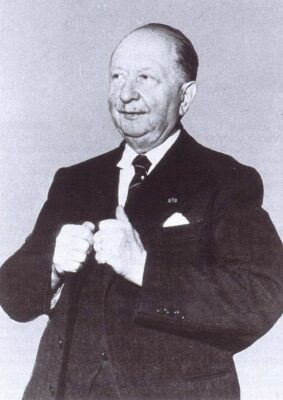In his 1941 essay titled “Sensibility and History,” the historian Lucien Febvre lamented what he saw as scholars’ singular focus on the rational, reason and the intellectual. As fascism threatened to overrun Europe and his home country of France, Febvre thought he saw proof that the political, economic and intellectual—so often assumed in his day to be the basis for the unfolding of historical events—had been overtaken by the emotional. Not to study historical events such as the rise of National Socialism in Germany as emotional, irrational, mad would leave historians collaborators to “a field of fetid corpses,” and further, implicitly, Febvre suggested that without such study, the historical discipline itself would remain undeveloped as its own rotten field.
Febvre’s colleagues bristled. Unlike the rich study of social structures and cultural constructions that developed into cornerstones of scholarship from the ideas of Febvre and his cohort in the Annales school, the history of emotions did not take root, or at least it did not develop, until some four decades later. Through these last three decades, a wave of histories of emotions have been researched and written. A major journal on the history of emotions has been founded and flourished, impressive conferences held, dozens of articles and books historical, theoretical and historiographical published. Yet, as of the 2010s, historians still wrote of the history of emotions as a “burgeoning field.” It is hard to imagine that we would refer to those other stalwart disciplines that developed from the Annales school’s emphasis on “bottom-up” accounts as still in early stages of development. Indeed, the term burgeoning would be pejorative if not insulting to the literature of cultural history, American Studies, Women’s and Gender Studies or African American Studies after more than half a century of effort. Nonetheless, that is the precisely where we find the history of emotions, with remarkably incisive work but still not having found its place in the academy, still only “increasingly [being] recognized as a legitimate approach,” still “peripheral to the historical discipline.”

Lucien Febvre, Bibliothèque nationale et universitaire de Strasbourg, Wikimedia Commons
Why has it taken so long for historians to take up Febvre’s call? Even as a wave of rich studies on emotions in history have been published, why has the field stalled in broadening to more general use among historians? Why so frustrated or, in other words, why so frustrating? For one, a stubborn impediment to the “emotional turn,” can be traced through the western canon in which the economic, political and militarily strategic have been written as the stuff of the “hard” sciences, as more proper inquiry than the traditionally understood sphere of emotions as soft, squishy and effete. René Descartes, in his founding of modern philosophy and scientific inquiry, fixed a binary between emotion versus reason, mind versus body, that hard versus soft valuation that the neuroscientist Antonio D’Amasio popularly termed “Descartes’ Error.”
The sense of medieval humors imbalanced held sway for Febvre and his colleagues. In the very same essay in which Febvre delivered the salvo for further inquiry, he described emotions as a “disturbance, as something dangerous, troublesome and ugly…as something that ought not to appear naked.” Even as he urged his colleagues to take up the study of affect, he warned against the emotional as a dark force of human nature that threatened to overrun France. That sense of threat still dominates the field of history. Historians might refer to their own emotions as “disturbance…troublesome and ugly” in their own work. While the subject may be emotion, they are strictly policed so as not to be emotional themselves, so as not to allow that poison of subjectivity to mar the investigation of their subjects. Even as the differences between the rational and irrational have been deconstructed, even as it is argued that the emotional need not be false, unreliable and effete, the historian is meant to remain strictly unsullied by feeling. There is a disconnect vexing and unresolved. Historians of emotion argue for a need for an “emotional turn” that would raise emotion as a necessary category of investigation along with race, gender, class and culture, but the emotional curiosities of historians, those excitements, disappointments, titillations, repulsions and biases historians experience during the course of their scholarship, are purported to be stripped bare from their scholarly products in similar fashion to those colleagues who warned Febvre from investigating too closely such dangerous emotions.

0